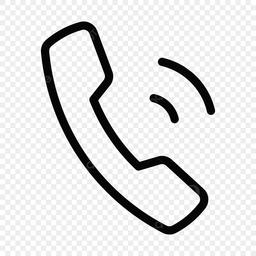What gauge is baling wire?
Baling wire comes in many gauges for different tensile and load strength requirements. The most common baling wire gauges are 9–14, which are suitable for most applications and compatible with most baling machinery.
Our highest gauge wire
Our highest gauge (thinnest) wire is 14 gauge. We sell 14 gauge galvanized wire, and black annealed and galvanized single loop bale ties. 14 gauge wire is sufficient for light-duty baling applications, such as smaller plastic bales produced by manual vertical balers.
Our lowest gauge wire
Our lowest gauge (thickest) wire is 9 gauge. We sell 9 gauge galvanized double loop bale ties. We also sell double loop bale ties with a bright (uncoated) finish. 9 gauge bale ties effectively baling heavy, dense materials and materials exerting extreme outward force, such as copper, rubber tires, and foam.
Understanding wire gauge
Gauge is a measurement that originated within the manufacturing process, and refers to the diameter or thickness of a wire. Wire gauge is typically measured using the American Wire Gauge system, and serves as the standard way to confirm wire size in North America.
Wire gauge determines load strength, tensile strength, and how well a wire can handle the pressure and weight of the materials being baled.
Wire diameter is inversely related to gauge, meaning a higher gauge corresponds to a thinner wire. This is because gauge refers to the number of times a wire has been drawn and stretched through progressively smaller dies during manufacturing. A 12 gauge wire, for example, has been drawn through twelve dies, decreasing its diameter each time.
Our wire size chart
|
Gauge |
Single loop bale ties (inches) |
(inches) |
Black annealed wire (inches) |
Regular galvanized wire (inches) |
Hi-tensile galvanized wire (inches) |
|
9 |
NA |
0.148 |
NA |
NA |
NA |
|
10 |
NA |
0.135 |
0.135 |
NA |
NA |
|
11 |
0.117–0.119 |
0.120 |
0.120 |
0.117–0.119 |
0.119–0.121 |
|
12 |
0.102–0.104 |
0.105 |
0.105 |
0.102–0.104 |
0.104–0.106 |
|
12.5 |
NA |
0.099 |
NA |
NA |
NA |
|
13 |
0.088–0.090 |
NA |
NA |
0.088–0.090 |
NA |
|
14 |
0.077–0.079 |
NA |
NA |
0.077–0.079 |
NA |
Check out our baling wire gauge guide for more information.
Types of baling wire we sell
Galvanized wire
Galvanized wire has a protective zinc coating applied through our hot-dip galvanization process. It is commonly used for:
- Baling materials that will be stored outside
- Baling agricultural products such as hay and grass
- Non-baling applications such as fencing and on vineyards and orchards as trellising
Galvanization offers superior corrosion resistance, making it the go-to choice for harsh conditions and saline environments. We offer both Class 1 and Class 3 galvanization on our galvanized wire products. Class 3 features a zinc coating that is roughly three times thicker and lasts nearly four times as long as Class 1.
We sell galvanized wire by the stem in gauges 11–14, as well as galvanized bale ties.
High-tensile galvanized wire
High-tensile wire is used for both baling and non-baling applications. The increased tensile strength boosts pressure resistance and allows the wire to take on heavier loads. High-tensile wire is commonly used for:
- Binding dense materials such as tires, HDPE plastics, and metal
- Two-ram balers that exert more compressive force
- Baling materials that will be stored outside
- Large animal enclosures due to its improved strength and rust resistance
We sell high-tensile wire by the stem in 11 and 12 gauge.
Black annealed wire
Black annealed wire undergoes a heat treatment process called annealing. This softens the wire to improve its ductility. While it is less resistant to rust than our galvanized wire products, black annealed wire still offers some corrosion resistance. Black annealed wire is great for:
- Bales that will remain indoors
- Baling materials that are prone to expansion
- High volume auto-tie balers
We sell black annealed wire by the box and by the stem in 10–12 gauge.
Single loop bale ties
Single loop bale ties (also wire ties or tie wire) are used in manual tie vertical and horizontal balers. They are suitable for:
- Lighter bales
- Fluctuating bale sizes
- Economical operations
We sell both black annealed and galvanized single loop bale ties in gauges 11–14.
Double loop bale ties
Double loop bale ties are pre-cut to match specific bale sizes. They are ideal for:
- Heavier bales
- Expansive materials
- Uniform bale sizes
- Bales stored outdoors (galvanized finish)
- Client-facing retail environments (bright finish)
We sell double loop bale ties in galvanized and bright (uncoated) finishes.
Baling wire products we offer
Baling Wire Direct sells the following high-quality baling wire products.
Baling Wire FAQ
Didn't find your answer?
Our team is just an email away and ready to answer your questions


